Making your groceries last longer is not only a smart way to save money but also an essential step in reducing food waste. With proper techniques, you can extend the freshness of your produce, meats, and dairy, ensuring that your meals are both delicious and nutritious. This article will provide you with practical tips to maximize the shelf life of your groceries. By following these strategies, you’ll not only stretch your grocery budget but also contribute to a more sustainable lifestyle. Let’s dive into the best ways to store, freeze, plan, and preserve your food effectively.
Contents
Proper Storage Techniques
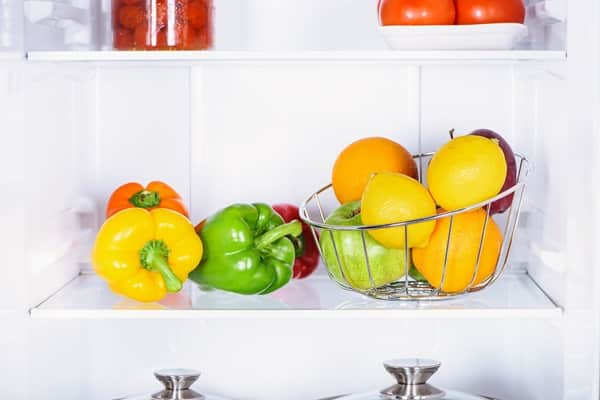
Proper storage is crucial for maintaining the freshness and quality of your groceries. Improper storage can lead to spoilage, resulting in wasted food and money. For fruits and vegetables, it’s important to know which ones can be stored together. Ethylene-producing fruits like apples and bananas should be kept separate from other produce to prevent premature ripening. Using breathable bags or containers can also help maintain the right humidity levels, keeping your produce fresh for longer.
When it comes to storing meat and dairy, there are specific practices to follow. Meat should be kept in the coldest part of the refrigerator, typically the bottom shelf or a dedicated meat drawer, to slow down bacterial growth. Dairy products like milk, cheese, and yogurt should be stored in airtight containers to prevent them from absorbing odors from other foods. By following these storage tips, you can significantly extend the shelf life of your groceries and reduce waste.
Freezing Foods
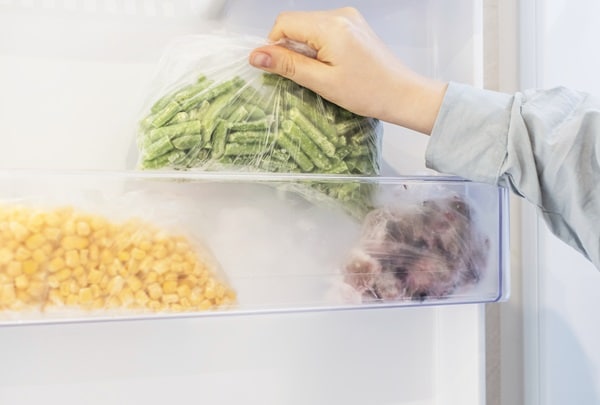
Freezing is an excellent method for preserving a variety of foods, allowing you to extend their shelf life and reduce waste. The benefits of freezing foods are numerous; not only does it keep your groceries fresh for longer, but it also helps preserve their nutritional value. When freezing fruits and vegetables, it’s important to blanch them first to maintain their texture and color. Proper packaging, such as using freezer bags or airtight containers, is essential to prevent freezer burn.
Different types of food require different freezing techniques. For meats and fish, portioning them into smaller sizes before freezing makes it easier to thaw and use only what you need. Wrapping them tightly in plastic wrap and then placing them in a freezer bag helps prevent freezer burn and keeps them fresh. Dairy products and baked goods can also be frozen, but it’s important to follow best practices to maintain their quality. For instance, grated cheese freezes better than whole blocks, and bread should be sliced before freezing for easy use later. By mastering these freezing techniques, you can make your groceries last much longer.
Meal Planning and Preparation
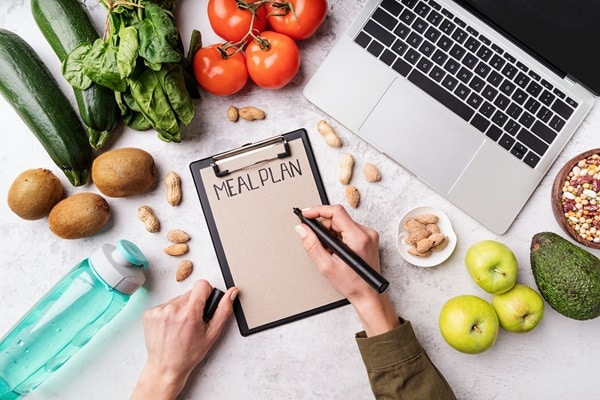
Meal planning is a powerful tool in making your groceries last longer. By planning your meals in advance, you can reduce impulse purchases and ensure that you use all the groceries you buy. Start by creating a weekly menu that includes all your meals and snacks. Once you have your menu, make a shopping list based on the ingredients you need. This approach helps you buy only what you need, reducing the chances of food going to waste.
Effective meal preparation can also extend the life of your groceries. Prepping ingredients in advance, such as chopping vegetables or marinating meat, can save time during the week and ensure that you use everything before it spoils. Batch cooking is another great strategy; prepare large portions of meals that can be stored in the refrigerator or freezer and consumed throughout the week. This not only saves time but also helps you manage your groceries more efficiently. By incorporating meal planning and preparation into your routine, you can make the most of your groceries and reduce waste.
Using Preservation Methods
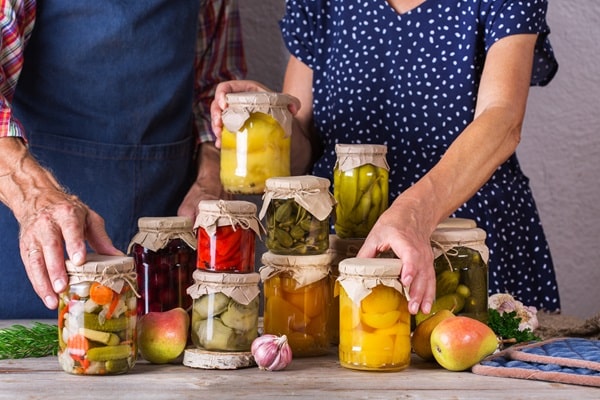
Different preservation methods can significantly extend the shelf life of your groceries. Canning, pickling, and fermenting are excellent ways to preserve a variety of foods. These methods not only help in extending the shelf life but also add unique flavors to your meals. For example, canning involves sealing foods in airtight containers and heating them to kill bacteria, which is perfect for fruits, vegetables, and even meats. Pickling, which uses vinegar and spices, can transform cucumbers, carrots, and other vegetables into tangy, flavorful snacks.
Fermenting is another valuable preservation technique. This method relies on beneficial bacteria to preserve foods and can enhance the nutritional value of your groceries. Fermented foods like sauerkraut, kimchi, and yogurt are rich in probiotics, which are beneficial for digestive health. Each preservation method has its own set of best practices. For canning, it’s crucial to sterilize jars and ensure a proper seal to avoid contamination. Pickling requires the right balance of vinegar, salt, and spices while fermenting needs the right temperature and environment to foster the growth of good bacteria. Mastering these preservation techniques can help you enjoy your groceries longer and add variety to your diet.
Proper Use of Leftovers
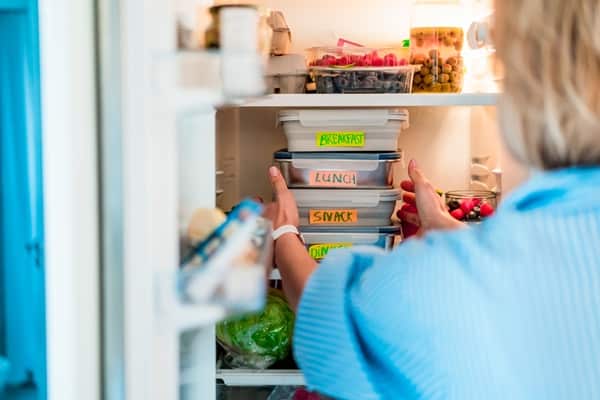
Effectively using leftovers is key to minimizing waste and maximizing the value of your groceries. Leftovers can be repurposed into new meals, saving time and money. For instance, roasted chicken can be turned into chicken salad, tacos, or soup, providing multiple meals from a single cooking session. Additionally, using leftovers in creative ways can prevent mealtime boredom and ensure nothing goes to waste. Think about incorporating leftover vegetables into a frittata or using last night’s rice to make fried rice.
Storing leftovers properly is essential to maintain their quality and safety. Labeling and dating containers help you keep track of what needs to be eaten first. Ensure that leftovers are cooled quickly and stored in airtight containers to prevent bacterial growth. Reheating leftovers properly is also important; make sure they reach the appropriate temperature to kill any potential bacteria. By being mindful of how you use and store leftovers, you can make your groceries last longer and reduce waste.
Buying Smart

Buying groceries smartly is the foundation of making them last longer. Start by choosing fresh and high-quality produce, which naturally lasts longer than items that are already starting to spoil. Understand expiration dates and best-before labels to make informed purchasing decisions. Fresh items should be consumed first, while those with longer shelf lives can be stored for later use. This approach ensures you get the most out of every grocery trip.
Bulk buying can be a cost-effective way to stock up on groceries, but it’s important to manage portions to prevent waste. Purchase bulk items that you frequently use, such as grains, nuts, and non-perishable foods, and portion them into smaller containers for easier use. This helps in maintaining freshness and reduces the risk of spoilage. Additionally, focusing on local and seasonal produce can improve the longevity of your groceries. Local produce tends to be fresher because it doesn’t have to travel far, and seasonal items are often harvested at their peak, providing better quality and longer shelf life. By buying smart, you can ensure that your groceries last longer and your meals remain fresh and nutritious.
Reducing Waste
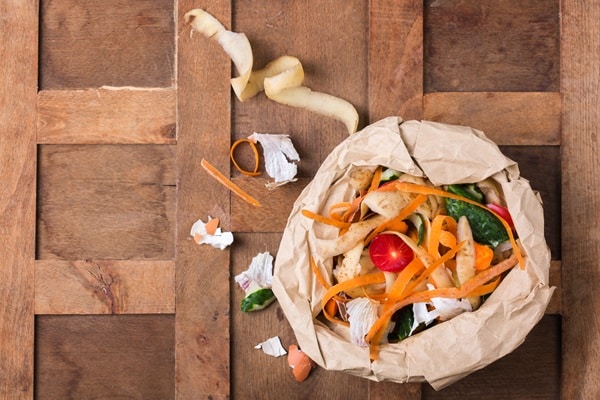
Reducing food waste at home starts with being mindful of what you have and how you use it. Regularly check your fridge and pantry to keep track of the items you have and their expiration dates. This helps prevent the unnecessary purchase of items you already have and ensures that older products are used first. Implementing a “first in, first out” system can help rotate your stock efficiently. By organizing your groceries and planning meals around what you have on hand, you can minimize waste and maximize the use of your groceries.
Composting food scraps is another effective way to reduce waste and contribute to a more sustainable lifestyle. Vegetable peels, coffee grounds, eggshells, and other organic waste can be composted to create nutrient-rich soil for your garden. Starting a compost bin is relatively easy and can significantly reduce the amount of waste that ends up in landfills. Educating your household on the importance of reducing food waste and encouraging everyone to participate can make a big difference. Setting household goals for reducing waste and tracking your progress can keep everyone motivated and mindful of their food consumption habits. By adopting these practices, you can extend the life of your groceries and contribute to a healthier environment.
Making the Most of Your Groceries
Maximizing the lifespan of your groceries is a practical and impactful way to save money and reduce waste. By implementing proper storage techniques, utilizing freezing methods, planning meals, preserving foods, creatively using leftovers, shopping smartly, and reducing waste, you can ensure that your groceries last longer and remain fresh. These strategies not only help you get the most out of your grocery budget but also contribute to a more sustainable lifestyle. Start incorporating these tips into your daily routine and experience the benefits of a more efficient and eco-friendly approach to grocery management.